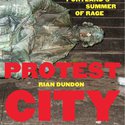nofilmschool Friday June 30, 2023
Visual storytelling is a powerful tool for filmmakers to create engaging and immersive experiences for their audience, but it’s an art form that requires time, practice, and dedication to master, notes NoFilmSchool, which has a guide offering tips on everything from shot selection and camera movement to narrative pacing. Don’t rush the story!
Read the full Story >>
The Guardian Friday June 30, 2023
Everyone’s a critic: A new exhibition at the Tate Modern in London called “Capturing the Moment” is capturing some negative reviews. The exhibition looks at the relationship between painting and photography—“a hopelessly broad, well-worn premise for an exhibition,” notes the Financial Times. The show’s “premise feels like nonsense,” declares Laura Cumming at The Guardian, adding, “There is no thesis, no catalogue, no developed argument.” But, hey, if you’re in London (through Jan. 28, 2024) you can judge for yourself.
Read the full Story >>
Reuters Friday June 30, 2023
Silicon Valley’s AI gold rush continues: Meta has announced what it calls a “human-like” artificial intelligence image generation model that can analyze and complete unfinished images more accurately than existing generative AI models. The model, I-JEPA, uses background knowledge about the world to fill in missing pieces of images, rather than looking only at nearby pixels like other generative AI models, according to the company. That approach incorporates the kind of human-like reasoning advocated by Meta's top AI scientist Yann LeCun, notes Reuters.
Read the full Story >>
Oregon State University Press Friday June 30, 2023
Rian Dundon, who has been photographing the rise of extreme politics on the West Coast since 2016, lived only a short walk from the protests that erupted in Portland, Oregon in the summer of 2020, after the murder of George Floyd. For 100 days, Dundon enmeshed himself in the demonstrations with a small point-and-shoot camera. The result is the book Protest City, which the Oregon State University Press calls “a graphic portrayal of how social movements become politicized,” and how “spectacle serves as a subtext to change in the digital age.”
Read the full Story >>




